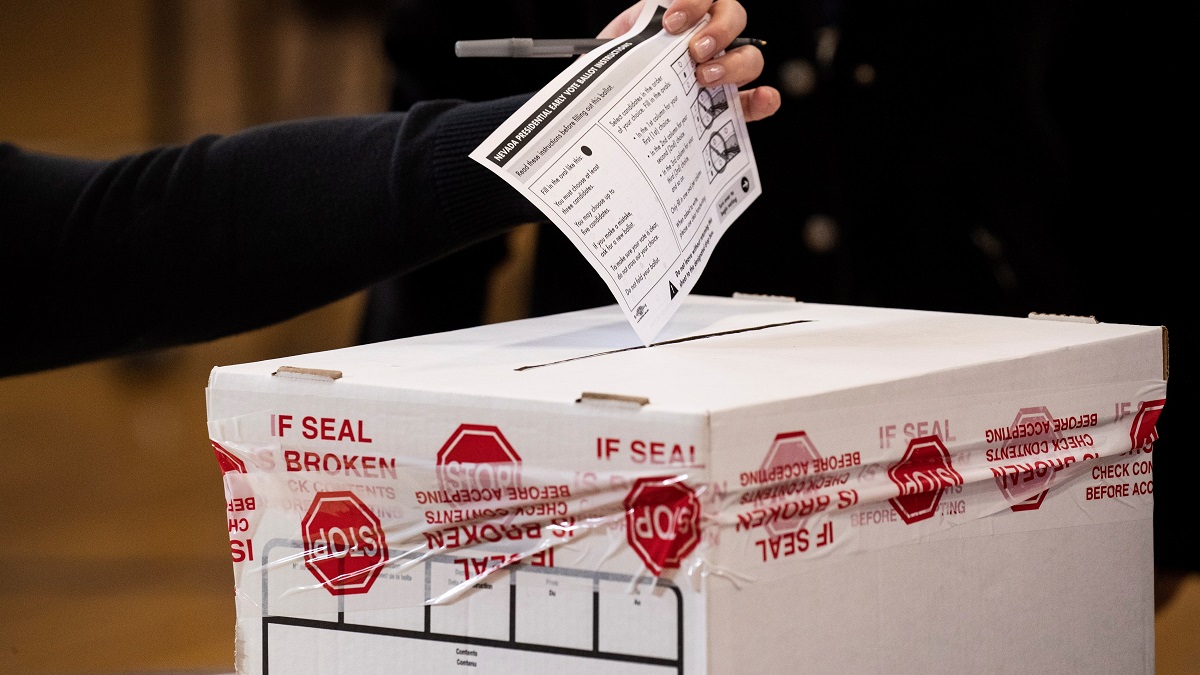San Diego voters have a slew of measures on their ballots for the 2020 California Primary Election, including some that could affect local tourism, retail pet stores in National City and education facilities across the county.
Whether you vote by mail or in-person, these are all the measures that could appear on your ballot. Voters will not see measures for municipalities in which they do not live.
Before you fill out your ballot, read up on each measure below, and find arguments for and against in the SDVOTE Voter Information Pamphlets mailed to you or online here.
Measure A: Amendment to the San Diego County General Plan
If Measure A passes, any changes to the County of San Diego General Plan that would increase residential density in semi-rural and rural areas of unincorporated San Diego will have to be approved by voters countywide.
The measure comes from a petition led by the “Safeguard Our San Diego Countryside Initiative,” which garnered signatures from 10 percent of county voters requiring the Board of Supervisors to either adopt the measure or place it on the ballot before voters.
Currently, the County Board of Supervisors decides on housing development proposals that conflict with existing land-use zoning. The decision-making would turn to voters if Measure A passes by a simple majority.
The amendment would be in effect until 2039.
Measure B: Newland Sierra Amendments to the San Diego County General Plan
Voters will decide on the fate of a housing project planned just off Interstate 15, next to the cities of Escondido, San Marcos, and Vista.
The Board of Supervisors had previously approved the housing project, called the Newland Sierra development, but a petition forced the project to go before voters on March 3 instead.
The Newland Sierra development calls for over 2,100 homes, a school, retail space, parks, and open space.
That project requires an amendment to the general plan because the area's current home allowance is 99, whereas this measure would increase that to 2,199. This measure requires a simple majority vote.
City of San Diego voters will decide whether to increase the hotel tax to help fund Convention Center upgrades, homeless services and road repairs. The current 10.5 percent tax would increase to 11.75, 12.75, or 13.75 percent, depending on a hotel's proximity to the downtown Convention Center.
The measure details say 59 percent of funds will be for Convention Center purposes and 41 percent for homelessness programs and services. That's until the fiscal year 2023-2024 when 10 percent is moved from homelessness to street repairs.
If approved by two-thirds of voters, the tax rates could be in effect until at least 2061.
Measure D: Charter Amendments Regarding Audit Committee and Selection and Term of City Auditor
In the current system, the San Diego mayor consults with the Audit Committee to appoint the city auditor and then the council confirms the candidate.
If passed by a simple majority, this measure would let the council appoint the auditor from a list of at least three people evaluated and recommended by the Audit Committee.
Measure E: City of Chula Vista Municipal Code Changes to Preserve State Funding for Public Works
Voters in Chula Vista will decide whether to repeal a section of the city code that essentially withholds the city from entering into funding contracts that have provisions associated with project labor agreements, or PLAs.
PLAs are pre-hire are agreements between construction contractors and labor organizations that establish terms and conditions of employment for construction projects.
In 2010, voters chose to prohibit the city’s ability to engage in projects with contractors tied to labor organization agreements.
This measure would eliminate possible inconsistencies between Chula Vista and California law, which generally disqualifies cities with anti-PLA laws from receiving state funding for local infrastructure, according to the city attorney’s impartial analysis.
The Chula Vista City Council placed the measure on the March 3 Primary ballot. The measure needs a simple majority to pass.
Measure G: Del Mar Marisol Specific Plan
City of Del Mar voters will decide whether a luxury resort, called Marisol, will be developed on a portion of oceanfront land. If approved by a simple majority, the Marisol site would build a 65-room hotel, 31 villas, dining and cocktail lounges and 22 affordable housing units.
Measure S: Proposed Three-Quarter Cent Sales Tax for City of Lemon Grove
If approved by a simple majority, the sales tax in Lemon Grove would increase from 7.75 to 8.5 percent for an expected revenue of about $3 million a year for the city’s general fund.
The tax would be used by the city to fund, enhance, and maintain city services.
There is currently no sales tax specific to Lemon Grove. The tax would not apply to food purchased as groceries or prescription medications.
Measure H: Appointed Offices in National City
This measure would change National City’s City Clerk and City Treasurer positions from elective to appointive by the City Manager.
Decision 2020
Measure J: National City Ban of Retail Pet Sales
National City is seeking to adopt local regulations that are more restrictive than a state law that targets commercial pet breeders, requiring pet stores to get animals from shelters or rescue groups.
If the measure passes, pet shops would be prohibited from selling, bartering, or auctioning animals unless they are a publicly operated animal shelter or agency or if they do not receive any fee from the adoption.
Pets can still be sold from the place they are born or through a breeder, excluding pet shops and retail pet stores.
National City City Council approved the ordinance in September 2019 and then a petition was filed to move the decision to the ballot.
Measure K: Appointed Offices in Oceanside
This measure would change Oceanside’s City Clerk and City Treasurer positions from elective to appointive by the City Manager.
Measures L through P, Bond Issues for School Districts: All measures require 55 percent approval and the money would be used for various school facility improvements.
- Cajon Valley Union School District: Bonds up to $220 million, requiring an average increased tax rate of $26 per $100,000 of assessed property value for bond repayment.
- Chula Vista Elementary School District: Bonds up to $300 million, requiring an average increased tax rate of $30 per $100,000 of assessed property value for bond repayment.
- Escondido Union School District: Bonds up to $205 million, requiring an average increased tax rate of $30 per $100,000 of assessed property value for bond repayment.
- Lakeside Union School District: Bonds up to $33 million, requiring an average increased tax rate of $30 per $100,000 of assessed property value for bond repayment.
- Poway Unified School District: Bonds up to $448 million, requiring an average increased tax rate of $30 per $100,000 of assessed property value for bond repayment.
Measure T: San Ysidro School District
This measure seeks to improve school security and upgrade facilities through a maximum of $52,985 million in bonds. The bond would require an average tax rate of $30 per $100,000 of assessed property value for bond repayment.
The bond can be used to make student safety and school security improvements; upgrade classroom technology; and construct, rehabilitate, acquire, equip and furnish classrooms and school facilities.
If the bond measure is approved by a supermajority of 55 percent, state law also requires the San Ysidro School District to establish and independent citizens' oversight committee.
Measure U: San Ysidro School District
This measure would allow the district to sell bonds up to $55.5 million, requiring an average tax rate of $30 per $100,000 of assessed property value for bond repayment. The measure seeks to upgrade classrooms and school facilities.
The bond can be used to reconstruct or replace roofs and plumbing and construct, rehabilitate, replace, acquire, equip and furnish classrooms and school facilities.
If the bond measure is approved by a supermajority of 55 percent, state law also requires the San Ysidro School District to establish and independent citizens' oversight committee.



